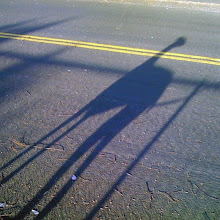The Stuff of Which Wars Are Happened
Hare manages to do what artists do—imagine—and given that overused verb has so much to do with empathy and understanding, he of course humanizes all the characters it would be so easy to demonize (except maybe Dick Cheney, who seems just the coiled ball of “America, love it or leave it” spite at least I want to assume he is). Even W., as played slyly and coldly by Keith Carradine—it’s a wicked performance as it gives us Bush devoid of any of the frat boy chumminess he likes to exude, and therefore makes he seem almost cunning at times in his silences—has his merits, if nothing else the sense of survival that the play’s Tony Blair is furious at Saddam for lacking. The play in particular makes Colin Powell a tragic figure, the only one seemingly hoping to stop the war, and the last “insider” to be told Bush’s already-decided decision. While I’m not sure I buy this reading of the real Powell, it makes for crackling good drama as he tries to play both ends, getting the White House to slow down while still trying to get the UN to do the US’s bidding.
I didn’t mean for this to be a full-out review, but if you want to see how theater can be relevant, how three years can get compressed into three hours that move faster than you can imagine (sort of like the three years), check out Stuff Happens.
But I do have one major issue with Mr. Hare. One way he opens the play up to voices beyond the official characters in the 40 person cast is to allow several speeches of direct address: the first is a person who dismisses the very concept of the play itself, admonishing (here I paraphrase), Why still examine what happened in the run up to the war? Isn’t it better that a tyrant is out of power? How selfish of the West to think democracy can’t be brought to Arabs…. The last of these voices, however, is an Iraqi exile who has fought against Saddam from overseas, but now that the tyrant is deposed this man isn’t sure his country is better off. He finds Rumsfeld’s stuff happens quote to be horribly racist and laments how no one counts the innocent Iraqi dead. But he goes further, in one of those theater moments in which a character speaks of his plight yet is meant to illuminate everyone’s: He says that his countrymen were to blame for Saddam, for when everyone fails to take his or her share of power, often the wrong person does. Calling for greater public political engagement: “If you don’t do it yourself, this is what you get.”
The Mark Taper nearly hummed at the line, the recognition that America chose Bush, England chose Blair, just as Iraq allowed for the vacuum in which Hussein grabbed hold. But just as quickly a woman behind me said, “I didn’t vote for him.”
Just as Hare his point, all of us who have fought against Bush in two elections also have a point, but a point isn’t power. Millions marched worldwide in February 2003 and all they had was their numbers and their hope. Even saying, “I was one who tried” is nothing more than praying there’s something to pray to, that something can give forgiveness.


0 Comments:
Post a Comment
<< Home